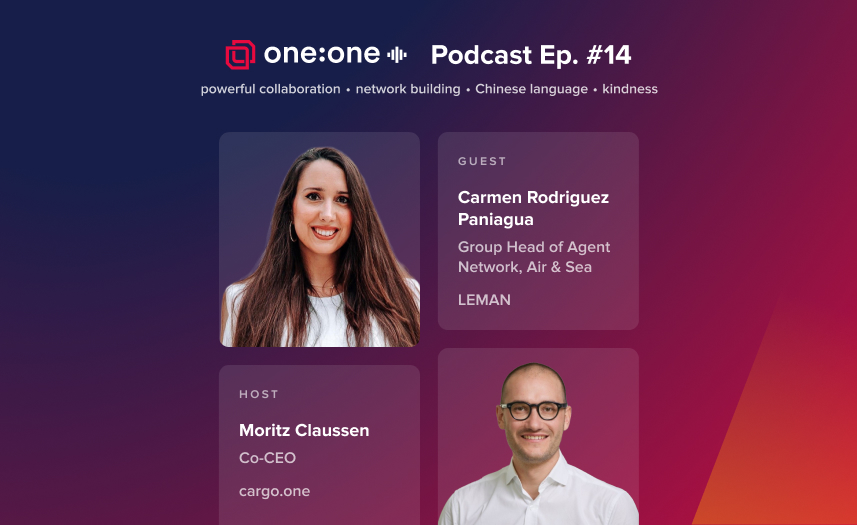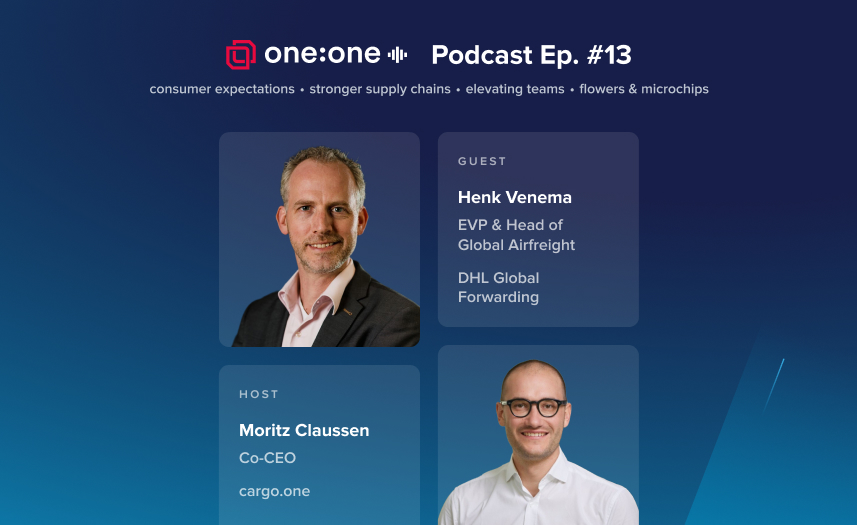In my earlier piece, we explored how many forwarders struggle to achieve successful adoption of their in-house digital air freight booking platforms, even after investing heavily in direct carrier integrations. Often, poor user experiences and low perceived value can lead large numbers of users to find alternative air cargo booking tools. With amazing and free external booking platforms like cargo.one available at the click of a button, agents will always source and prioritize the best option for their needs – leaving internal tools unused.
Digital air freight procurement
As forwarders realize that the product experience and value of their internal platforms are make or break for adoption, the question soon becomes: “How can we generate enough value for our users to thrive with our internal platform and in turn, drive our return on investment?”
To build an enticing platform, forwarders must essentially recreate the same offer quality and user experience as the best alternative does – and in many cases that is the cargo.one platform.
Our north star is to guarantee exceptional experiences when forwarders book air cargo. To bring this to life, we dedicate a team of over 30 people to work around the clock to ensure that our breath, depth and accuracy of market offers is top-quality.
Like no other platform, our work centers around driving:
Offer breadth: The user is happiest when they can find what they are looking for – as an airfreight booking agent, this means many if not all the carriers you would expect to serve a capacity search.
Offer depth: The user is happiest if they find what they are looking for, including road feeder services, products and services which they can rely upon in the offline world.
Offer accuracy: The user is happiest when their selected offer is accurate to a degree that they can book it and immediately get confirmation about all the parameters selected, including the price, routing and times.
Such diligence means we build stable and scalable integrations to connect each of our more than 50 partner carriers, but it also means that we maintain thousands of custom rules, including loadability checks, road feeder service (RFS) schedules, product mappings, handling times, fees and currencies and much more.
We map thousands of error codes to ensure the user is never unsure, develop proprietary sorting and filtering algorithms to guarantee only relevant and bookable offers are shown, work with local carrier teams to ensure all capacity is online, and manually retrieve bookings, if ever a carrier’s API would be down.
When building direct airline integrations, many enterprise forwarders find that, while occasionally cumbersome, the integration work is initially manageable. However, the vast majority I have recently spoken to underestimated the extent of the ongoing work required to ensure great offer depth, breath and accuracy.
In fact, to properly manage an airline integration from the technical side, plus managing qualitative aspects of offer breath, depth and accuracy, requires a cross-functional team of a minimum five people, with each team dedicated to a maximum of five airlines. This ratio also quickly escalates in larger, complex organizations. Scale this to a relevant offer breath for 50 carriers, and the required team becomes infeasible for a freight forwarder to achieve internally.
In addition to the integration and maintenance work on airline connections, driving great user experience on the booking interface is another building block that requires significant resources. cargo.one’s product and engineering teams measure every user interaction, and constantly work to develop the user experience (UX). Our team of about 20 product managers and designers work on bi-weekly sprints to iteratively and continuously improve the cargo.one user experience.
An important aspect of market offer excellence is ensuring we have the most airlines for fully digital booking. We add around 1.5 airlines to the platform every month, and constantly expand with their product range, to ensure that forwarders discover the best possible options for every shipment. And today, all of this is provided across 116 countries.
Solutions that drive return on investment
There are huge strategic benefits to be unlocked with the digital procurement of air freight. However, even the largest forwarding companies inevitably struggle to develop the expertise and resources to build and maintain such a high quality platform. With cargo.one for enterprise, we have built solutions to satisfy this challenge – available via our frontend, TMS integrations and full-fledged APIs.
The cargo.one platform saves enterprise forwarders the vast and often unjustifiable costs needed to build solutions in house, as well as the ongoing development cost to ensure amazing user experiences. Cost-effective and fully customizable solutions from cargo.one deliver a full spectrum of strategic benefits, with low-cost risk and low resource involvement from internal teams.
Our embedded or white-labeled options allow for all functionalities of the cargo.one platform, in any corporate identity, and seamlessly integrate into virtually all types of TMS. Whether for internal users or external customers, our Offer & Book API suite delivers real time access to book with over 50 airlines. In addition, cargo.one’s Rapid Rates API and rate management tool delivers the most comprehensive rate overview to power any quotation, and many times more accurately than with rate sheets alone.
All our services benefit fully from the extensive work that cargo.one teams do daily to maintain the best freight booking platform in the industry – equipping forwarders to guarantee a valuable and amazing experience to all their internal users, for every shipment. Speak to our experts today to explore how cargo.one can accelerate your digitalization progress with solutions that your teams will love and thrive from using.
Finding our series useful? In our next installment, Moritz explores how gaining end-to-end quotation capability equips an enterprise forwarder to make strategic gains.


















.jpg)

